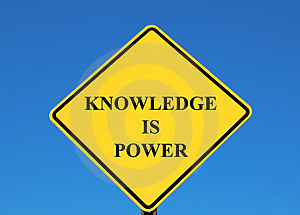There is a lot of Fibromyalgia information on the web. In the same day – same hour really – you can read seven “expert” and yet conflicting articles. One blog (maybe mine) will tell you to try yoga, while the next will tell you to avoid all types of exercise. One expert will tell you the condition is rheumatological, and the next will tell you it is neurological. One article will tell you your symptoms will never go away completely, the next will say you can heal completely if you do this, and don’t do that. And some articles simply take all the conflicting information out there and regurgitate it in a way you know the author researched Fibromyalgia the same day they wrote the article.
 How do you filter all this information?
How do you filter all this information?
Who do you believe?
Where do you go for your expert advice?
Fibromyalgia has slowly become current. And by that I mean with FDA approval of drugs to treat FM, and with the marketing that comes along with it – to us via media, and to health practitioners via free samples and kick backs – Fibromyalgia is visible. So of course every health expert and health blog must have something to say on it or they are not being current. This benefits us in a lot of ways, but it also creates a problem of authority.
Who do you trust?
Who do you believe?
I recently received an email asking me about a current book on Fibromyalgia. Is it authentic? Is it worth the read? Is the author simply looking to cash in on the newest hot topic?
Having not read the book myself I could easily have said “sorry I have not read it” and moved on, but by creating this blog I have positioned myself as a type of authority on Fibromyalgia (and I believe patient experts are the best experts), so I shared with her my general opinion on all Fibromyalgia related information out there:
 Knowledge is power. If you are interested enough from researching the book, I say get it and read it. It may turn out that you disagree with the authors findings/opinions on FM, but it can often be just as helpful to read literature we disagree with, as it is to read a tried and true information source.
Knowledge is power. If you are interested enough from researching the book, I say get it and read it. It may turn out that you disagree with the authors findings/opinions on FM, but it can often be just as helpful to read literature we disagree with, as it is to read a tried and true information source.
But be a savvy reader. Blind faith, blind trust in “authority” is just scary. Especially in this age of the web when anyone can write and publish an article, and call themselves an expert. A healthy amount of skepticism is good. Trust yourself first, and then take away from your research the things that serve you best. I have had several people tell me that yoga sucks! I disagree, but I leave it at that. It is not up to me to convince them otherwise. Because truly, the only thing I am an authority on is my daily battle with Fibromyalgia. Keep this in mind when reading all the “expert” advice out there; you are your own best authority.
And the sign said everybody welcome, come in, kneel down and pray
But when they passed around the plate at the end of it all,
I didn’t have a penny to pay, so I got me a pen and a paper and I made up my own little sign
I said thank you Lord for thinking about me, I’m alive and doing fine ~ Five Man Electrical Band
Geez that song brings back great memories. Nice blog post. I wonder what book you were talking about though… Thanks, Dannette.
I really enjoyed this post. I used to spend so much time doing what the ‘experts’ a.k.a. doctors around me told me to do. Then doctor by doctor, I finally realized that I knew more about my self and MY fibromyalgia than they would ever know. Eventually, I also realized that everyone with fibromyalgia seemed to have it differently. What works for you or me in treating our fibromyalgia could have no bearing at all on the fibromyalgia my friend is suffering from.
Good advice. I loved the quote. I am here, doing my best.
That is all we can do Anna – our best.
Naming a disease puts you at risk of manikg a medical claim. Only medical doctors are legally allowed to treat medical conditions, so you may be accused of practicing medicine without a license.Instead of naming a disease, tell the symptoms of the disease. People identify better with symptoms. Then add your disclaimer: I don’t know if it will work for you or not, but what if it does? What if it works for you the way it did for me? Would you like to try it? Thanks Kim for teaching this information in your Orange Book.